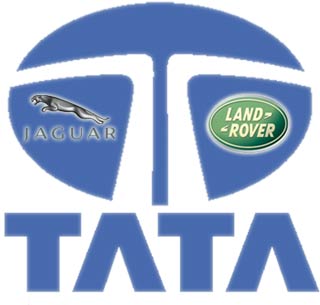| India’s Tata Grabs an Icon |
|
|
| Sreeram Chaulia | |
| 26 March 2008 | |
|
Tata’s takeover of Jaguar and Land Rover is the latest move to change the landscape of the industrial world
Since 1985, the value of outward foreign direct investment from developing countries has risen eleven-fold, demonstrating significant capital accumulation and global expansion in what were once thought of as irretrievably poor countries. Today five of the 10 richest people on Forbes’ annual list of billionaires – four Indians and a Mexican – hail from the developing world. Traditionally, most developing country multinationals invested to gain market access in their geographical neighbors. From the mid-1980s, however, Asian multinationals from South Korea, Taiwan, Hong Kong, Singapore, Malaysia, Thailand, China and India have gained strategic assets outside their own regions and also in developed countries. Many Chinese and Indian multinationals are seeking to acquire existing Western brand names instead of painstakingly carving out new brands as South Korean and Japanese corporations did earlier. As a result, brands that used to be symbols of Western technological and industrial pride are moving to places that were thought of as backward less than a generation ago. In December 2004, China’s Lenovo Group purchased IBM’s personal computing division for $1.25 billion, ending American ownership of one of the most prestigious hardware brands in the world. While business observers were quick to point that IBM was moving out of its hardware niche into IT services and shedding a lackluster division, Lenovo has made it work rather handsomely. With a sacred American label being snapped up by a strategic rival in Asia, the psychological impact of the IBM transaction far outweighed the pure economics, as some American congressmen even complained that the takeover “may pose a threat to US national security.” An even bigger controversy was generated in 2006 when India’s Mittal Steel bought the European giant Arcelor for $22.5 billion after intense huffing and puffing by the European press and political class. The months-long row over Europe losing one of its sacrosanct industrial champions to its former colonial subjects was dramatized by objections that the new Indian management will prove to be a “threat to European workers” and the governments of France, Luxembourg and Spain bemoaned loss of a beloved European company to a predator from India. While Lenovo and Mittal prevailed, some Asian multinational overtures have been grounded by protectionist obstructions. In 2005, the Chinese oil company CNOOC withdrew its $18.5 billion takeover offer for the California energy firm, Unocal, after being stonewalled in Washington. The furor was so nationalistic that one American senator asked rhetorically, “Does anybody honestly believe that the Chinese would ever let an American company take over a Chinese company?” Likewise, China’s Haier Corporation had to drop its $1.28 billion attempt to acquire the American appliance maker Maytag around the same time. While the reasons in Haier’s case were purely business-driven, the New York Times reported “some anxious nerves in Washington about the possibility of a second American corporate brand name falling into the hands of the Chinese.” In February of this year, China’s Huawei Technologies called off a proposed $2.2 billion takeover bid for the American internet router and networking company 3Com because the Bush administration was worried it would transfer sensitive anti-hacking software for military purposes. In 2006, India’s United Breweries withdrew its US$750 million bid for the French champagne maker Taittinger citing French hostility. As these examples illustrate, nervousness in the west over losing treasured corporate brands has a basis in both security and identity. But if it continues, as seems likely, the technological lead that sustained the political and military domination of the world by a select lot of Western countries is likely to evaporate as outward investment by Asian countries increases. Initially, little outcry accompanied the latest deal. Indeed, with Jaguar slumping and the economy falling, Tata may have its work out for it. “These are vanity products and probably these brands will have a tough time in a weak economy,'' Edwin Merner, president of Atlantis Investment Research Corp. in Tokyo told Bloomberg. Tata “will have trouble doing well in this sort of environment,'' he said. It may be worth the trouble. Tata gets an international dealer network and headline-grabbing status after just a decade or so making cars. And it is a major boost to Indian pride to have two brand names that go back to the colonial era in the country’s Industrial stable, but Tata’s shares fell 4 percent on news of the deal in Mumbai. Still, the de-industrialization of Western economies, particularly that of the US, is going hand in hand with the increasing sophistication and enlargement of Asian manufacturing companies. The shift is especially visible in the current recessionary climate, when Western countries are looking at their own core economic weakness. The cultural arguments that have been put forth by American and European lawmakers and citizens against accepting Asian multinational takeover bids are often couched in terms of danger to competition and workers’ rights. However, most post-acquisition scenarios show that the new Asian owners retain European or American workers and also abide by anti-monopolistic regulations in host countries. Tata’s takeover of Jaguar and Land Rover will result in saving, not losing, 16,000 British jobs. When Tata bought the European steel major Corus for US$8 billion in 2006, it improved employees’ job security. The economic logic in protesting Asian ownership of Western assets is dubious and largely a mask for cultural nightmares in which non-Westerners will dictate terms to their former colonial masters. Westerners are being challenged on their own turf via their own market principles in which the highest bidder takes the prize home. The soundness of acquisition propositions by Asian investors makes business sense in a competitive environment with free capital movement across borders. The vision with which Asian investors are infiltrating Western citadels despite political and cultural roadblocks has the wind of capitalist logic firmly behind it. Sreeram Chaulia is a researcher on international affairs at the Maxwell School of Citizenship in Syracuse, New York. He can be contacted at sreeramchaulia@hotmail.com |


